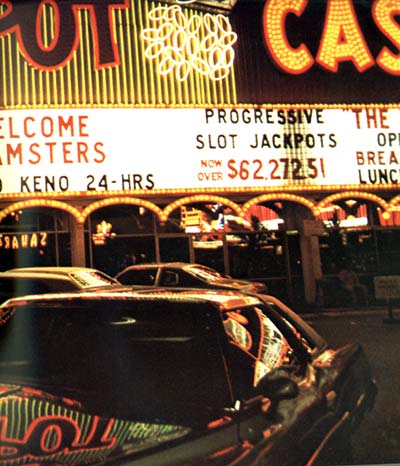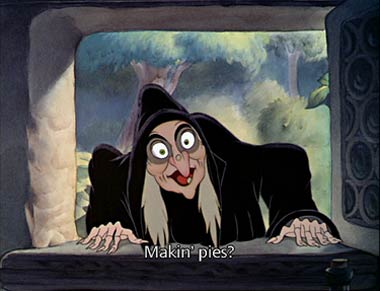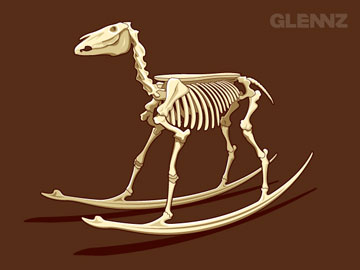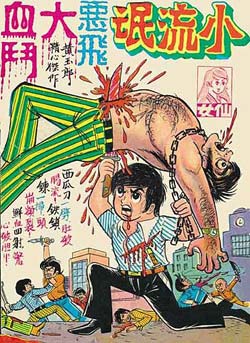U.S.
‘A dirty joke is a sort of mental rebellion.’ –George Orwell
Americans are getting increasingly anxious–and for good reason.
People are worried about the economy, and they should be. They have been told to expect a strong rebound from our deep recession. The usual pattern is that recoveries mirror the strength of the decline–the steeper the drop, the more vigorous the rebound. It isn’t happening. The latest employment report makes it clear that the economy is not adding jobs. State and local governments faced with declining revenues are being forced to cut employment, wages and services, and they are raising taxes wherever they can.
A little over a year ago the Obama administration passed a staggering $787 billion stimulus package designed to rescue the economy. More than half of that money has now been spent, and the economy is still just creaking along. But now people are realizing that there is a dark side to this spending orgy. It has to end, and then we have to pay the bill. If we need any reminders that the day of reckoning is coming we have only to look to Europe.
For years, almost nobody paid attention to the sky-is-falling alarms of Edward Hugh, a gregarious British blogger and self-taught economist who repeatedly predicted that the euro zone could not survive. (…)
But now that the European sovereign debt crisis is rattling world markets, driving the euro lower almost every day and raising doubts about the future of the monetary union, his voluminous musings have become a must-read for an influential and growing global audience, including policy makers in the White House.
{ CNBC | Continue reading | Thansk Douglas }
related:
Personal Bankruptcies Jump 9% In May, And The Outlook For The Year Has Been Jacked Up.
China bank adviser says property woes worse than US.
Public Pensions Could Bankrupt California.
Venice forced to sell off dozens of historic palazzos in order to bolster fast-diminishing funds.
Clearly I can see today. Moisture about gives long sight perhaps.
The M3 money supply in the United States is contracting at an accelerating rate that now matches the average decline seen from 1929 to 1933, despite near zero interest rates and the biggest fiscal blitz in history.
The M3 figures - which include broad range of bank accounts and are tracked by British and European monetarists for warning signals about the direction of the US economy a year or so in advance - began shrinking last summer. The pace has since quickened. (…)
Mr Congdon said the dominant voices in US policy-making - Nobel laureates Paul Krugman and Joe Stiglitz, as well as Mr Summers and Fed chair Ben Bernanke - are all Keynesians of different stripes who “despise traditional monetary theory and have a religious aversion to any mention of the quantity of money”. The great opus by Milton Friedman and Anna Schwartz - The Monetary History of the United States - has been left to gather dust.
Mr Bernanke no longer pays attention to the M3 data. The bank stopped publishing the data five years ago, deeming it too erratic to be of much use.
This may have been a serious error since double-digit growth of M3 during the US housing bubble gave clear warnings that the boom was out of control. The sudden slowdown in M3 in early to mid-2008 - just as the Fed talked of raising rates - gave a second warning that the economy was about to go into a nosedive.
Mr Bernanke built his academic reputation on the study of the credit mechanism. This model offers a radically different theory for how the financial system works. While so-called “creditism” has become the new orthodoxy in US central banking, it has not yet been tested over time and may yet prove to be a misadventure.
{ The Telegraph | Continue reading }
Europe is in crisis. Austerity measures have been announced in several countries including Greece and Spain, the euro is under pressure and stock markets across the globe have fallen sharply from their recent highs – and it is all due mainly to sovereign debt. (…)
What has caused the debt crisis?
In a word or two, over-borrowing. Sovereign debt is fine so long as the governments have no problem repaying the debt. But several countries have borrowed beyond their means – the ramifications of the financial crisis have left them struggling to repay their debt. This is why the IMF has agreed a financial package to bail them out.
Greece and other countries will struggle to pay off these debts. This has led to a dramatic spike in borrowing costs for these countries, exacerbating the problems further,” Mr Howse added. “Investors have begun to question the future of European Economic and Monetary Union and whether the crisis may spread beyond the peripheral European countries.
Though I’m certain that this heart of mine hasn’t a ghost of a chance in this crazy romance

{ Honeybees exposed to cellphone radiation appear to lose the ability to return to their hives and queen bees produce a lower number of eggs. Bees pollinate some 80 per cent of commercial crops —apples, melons, sunflower, mustard, cucumbers and radish, she said. “A massive loss of bees could cause loss of production of such crops,” Kumar added. | Telegraph India | Continue reading | Images: Bee Swarm Takes Over Wall Street | Watch the video | Thanks Douglas! }
500 a pop god damn it

{ The Shape of Manhattan in Subway Maps. Manhattan dominates in the new design, its girth growing by 31 percent over the current map.The island is depicted 83 percent wider than its actual proportions. | MTA will unveil a resized, recolored and simplified edition of the NY Subway map, its first overhaul in more than a decade. | NY Times |More }
His eyes on the black tie and clothes he asked with low respect: Is there any… no trouble I hope? I see you’re…
The C.I.A. and F.B.I. didn’t stop 9/11, so now we have the Department of Homeland Security. Decades of government subsidies for homebuyers helped create the housing crash, so now the government is subsidizing the auto industry, the green-energy industry, the health care sector… (…)
This is the perverse logic of meritocracy. Once a system grows sufficiently complex, it doesn’t matter how badly our best and brightest foul things up. Every crisis increases their authority, because they seem to be the only ones who understand the system well enough to fix it.
But their fixes tend to make the system even more complex and centralized, and more vulnerable to the next national-security surprise, the next natural disaster, the next economic crisis. Which is why, despite all the populist backlash and all the promises from Washington, this isn’t the end of the “too big to fail” era. It’s the beginning.
{ Ross Douthat/NY Times | Continue reading }
Power-knowledge is a concept coined by the French philosopher Michel Foucault. (…)
Both power and knowledge are to be seen as de-centralised, relativistic, ubiquitous, and unstable (dynamic) systemic phenomena. Thus Foucault’s concept of power draws on micro-relations without falling into reductionism because it does not neglect, but emphasizes, the systemic (or structural) aspect of the phenomenon.
It’s harder by now, cause the truth is so clear
Singapore, the country with the lowest child mortality rate in the world at 2.5 deaths per 1,000 children, cut its rate by two-thirds between 1990 and 2010. Serbia and Malaysia, which were ranked behind the U.S. in 1990, cut their rates by nearly 70% and now are ranked higher.
The U.S., which is projected to have 6.7 deaths per 1,000 children this year, saw a 42% decline in child mortality, a pace that is on par with Kazakhstan, Sierra Leone and Angola.
“There are an awful lot of people who think we have the best medical system in the world,” said Dr. Christopher Murray, who directs the institute and is an author of the study. “The data is so contrary to that.”
Even many countries that already had low child mortality rates, such as Sweden and France, were able to cut their rates more rapidly than the U.S. over the last two decades. (…)
Murray said high child mortality rates were not limited to black and Latino populations in the U.S. In fact, researchers have found high rates among higher-income whites, a group that traditionally has better access to medical care.
The data instead suggest broader problems with the nation’s fragmented, poorly planned healthcare system, Murray and other healthcare experts say.
New York City… You are now rockin w/
This weekend, the sun will set in perfect alignment with primary sections of the Manhattan street grid. Manhattanhenge 2010: May 30/31 and July 11/12.
Gino, an Italian restaurant which opened in 1945 on Lexington Avenue near Sixty-first Street, will close after Saturday night’s dinner on May 29th. All the items on the menu appear on a single plastic-covered page and were handwritten in ink sixty-five years ago by the restaurant’s founder, Gino Circiello.
Like so many of the city’s legendary nightspots, the Lion disappeared, replaced by a series of other restaurants on the ground floor of a brownstone on Ninth Street. It reopened last week, as a tavern and restaurant whose owners have labored to restore the spirit of its early-1960s heyday. A Vision of the City as It Once Was.
9/11 attacks linked to increased male baby miscarriages.
Times Square Set for Colorful Makeover Before Summer’s Tourist Rush. [eek!]
Claude Monet’s nympheas at Gagosian Gallery, until June 26, 2010.
Something pinned on: photo perhaps. Life? No.

{ Vance, a trapper boy, 15 years old. Has trapped for several years in a West Virginia coal mine at 75 cents a day for 10 hours work. All he does is to open and shut this door: most of the time he sits here idle, waiting for the cars to come. | BBC | more }
Where are you off to? Nowhere in particular.
In town to promote his new film, “Exit Through the Gift Shop,” Banksy, the pseudonymous British street artist, has been leaving reminders of his visit around the city. But almost as soon as the paint was dry, the pieces were scribbled on overnight by taggers claiming to be the Smart Crew and Emjay, well-known local graffiti artists.
Some of Banksy’s pieces were also tagged with a picture of a man’s face and a stenciled message reading “Free Henry—Poster Boy,” a reference to the street artist Poster Boy (real name: Henry Matyjewicz), who was sentenced to 11 months in prison last week on charges of criminal mischief.
Street artists in the city seem to be under siege at the moment. The Banksy markings come on the heels of a massive tagging attack on Shepard Fairey’s mural on East Houston Street. (And that mural itself had already been targeted with a stop-work order by the city’s Department of Buildings.) Police say they’re investigating the tagging, and note that Banksy lacked a permit for at least one of his drawings.
In the dark. What a lark. Police tout.
{ A Jefferson County teacher picked the wrong example when he used assassinating President Barack Obama as a way to teach angles to his geometry students. Someone alerted authorities and the Corner High School math teacher was questioned by the Secret Service, but was not taken into custody or charged with any crime. | Alabama Live | full story }
I want you to kiss Mr. Tambourine Man

Why are gamblers such a difficult subject for academic study?
“We have both spent over 10 years playing in and researching this area, and we can offer some explanations on why it is so hard to gather reliable and valid data,” wrote psychologists Mark Griffiths, of Nottingham Trent University, and Jonathan Parke, of Salford University explained, in a monograph called Slot Machine Gamblers – Why Are They So Hard to Study?
Here are three from their long list.
First, gamblers become engrossed in gambling. “We have observed that many gamblers will often miss meals and even utilise devices (such as catheters) so that they do not have to take toilet breaks. Given these observations, there is sometimes little chance that we as researchers can persuade them to participate in research studies.”
Second, gamblers like their privacy. They “may be dishonest about the extent of their gambling activities to researchers as well as to those close to them.” (…)
Third, gamblers sometimes notice when a person is spying on them. “The most important aspect of non-participant observation research while monitoring fruit-machine players is the art of being inconspicuous. If the researcher fails to blend in, then slot-machine gamblers soon realise they are being watched and are therefore highly likely to change their behaviour.”
Hard as hell, battle anybody I don’t care who you tell
{ Australian art critic Robert Hughes chats with an art collector }
Valise I have a particular fancy for

Transportation Security Administration
Service AnimalsIt is recommended that persons using an animal for assistance carry appropriate identification. Identification may include: cards or documentation, presence of a harness or markings on the harness, or other credible assurance of the passenger using the animal for their disability. (…)
Monkey Helpers
When a service monkey is being transported in a carrier, the monkey must be removed from the carrier by the handler prior to screening,
The service monkey must be controlled by the handler throughout the screening process.
The service monkey handler should carry the monkey through the walk through metal detector while the monkey remains on a leash.
When the handler and service monkey go through the walk through metal detector and the detector alarms, both the handler and the monkey must undergo additional screening.
Since service monkeys may likely draw attention, the handler will be escorted to the physical inspection area where a table is available for the monkey to sit on. Only the handler will touch or interact with the service monkey.
Security Officers have been trained to not touch the service monkey during the screening process.
Security Officers will conduct a visual inspection on the service monkey and will coach the handler on how to hold the monkey during the visual inspection.
The inspection process may require that the handler to take off the monkey’s diaper as part of the visual inspection.
‘Writing is not a profession, but a vocation of unhappiness.’ –Georges Simenon
In his 1959 memoir “A House on the Heights,” Truman Capote wrote, “I live in Brooklyn. By choice. Those ignorant of its allures are entitled to wonder why.” The main reason, it turns out, was his love of Brooklyn Heights, which he described as standing “atop a cliff that secures a sea-gull’s view of the Manhattan and Brooklyn bridges.” Capote lived in the garden apartment of a mansion on Willow Street in Brooklyn Heights from 1955 to 1965.
Get another cup of java, mercy mercy Mr. Percy
{ U.S. risks China’s ire with decision to fund software maker tied to Falun Gong, a Buddhist-like sect long considered Enemy No. 1 by the Chinese government. | Washington Post | full story }



















